
大午集团的天基: The Celestial Foundations of Dawu Group
大午集团的天基: The Celestial Foundations of Dawu Group
D. Carlton Rossi September 28, 2025 copyright

SUN Dawu 孙大午 : THE URAEUS
D. Carlton Rossi September 28, 2025 copyright
The large rectangle of the Big Dipper is the hood of the rearing Egyptian Black Cobra. The small rectangle of the Little Dipper is the coiled part of the tail. Both the Big and Little Dippers or Egyptian Black Rearing Cobra and the False Egyptian Cobra are connected and balanced.
In a Chinese orientation, the Dippers may represent connected opposites like Yin and Yang which increase and diminish in perpetuity. They may symbolize the continuous struggle between darkness and lightness or evil and good.

SHeng Hong 盛洪 Mao Yushi 茅于轼 Unirule 天则经济研究所: The Duat 𓇽
D. Carlton Rossi September 28, 2025 copyright
The Duat stands for a space of judgment, transformation, and eventual rebirth. It is represented by a star surrounded by a circle. The sun god Ra played a crucial role in the Duat. Each night, he traveled through its twelve regions on the Mesektet barque, battling Apep, the serpent of chaos. Ra’s journey symbolized the triumph of order over chaos and the renewal of life.
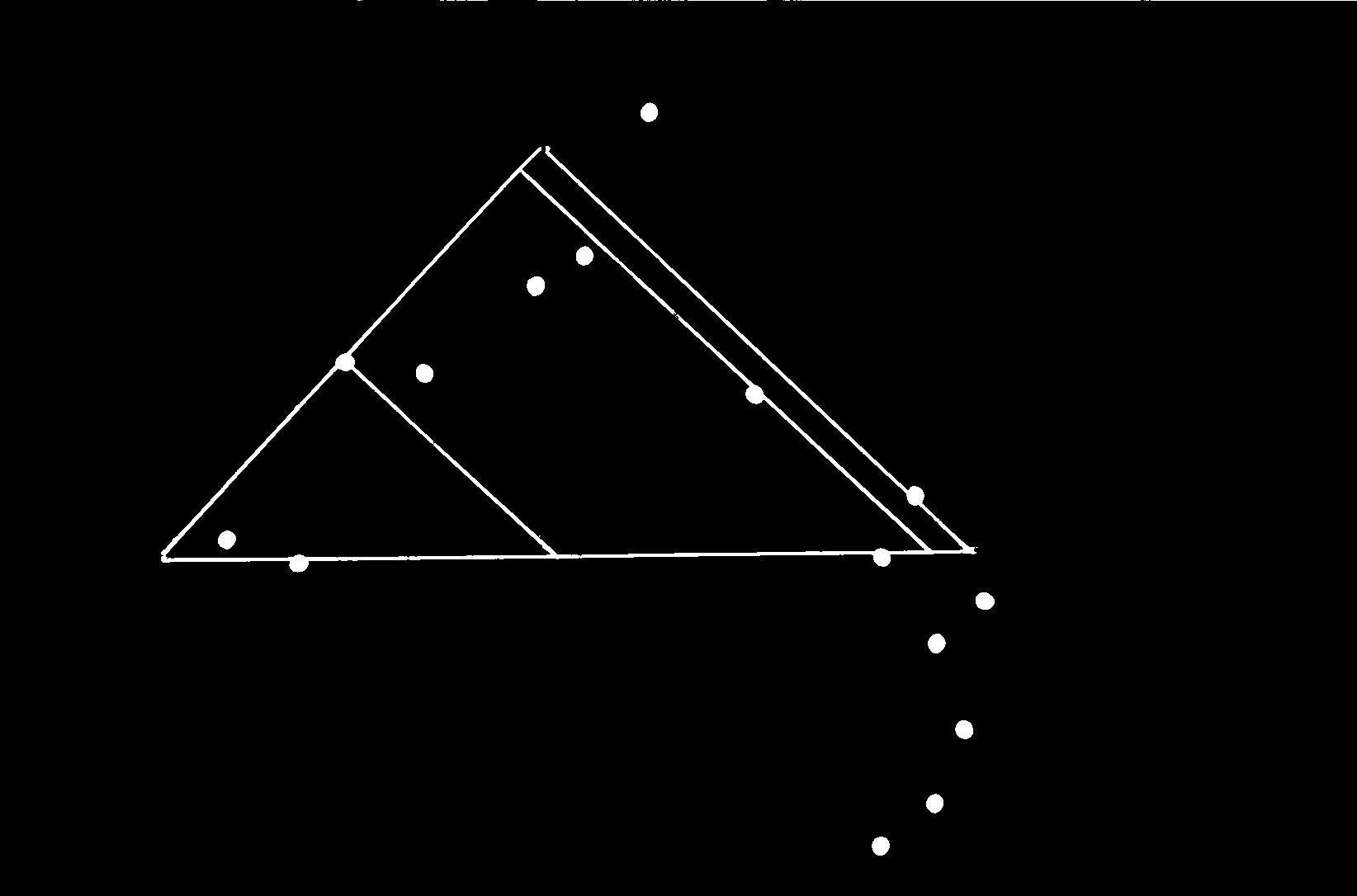
孙大午 Sun Dawu 孙志华 Sun Zhi Hua 孙德华 Sun De Hua: 嵌套金字塔 Nested Pyramids
D. Carlton Rossi November 11, 2025 copyright


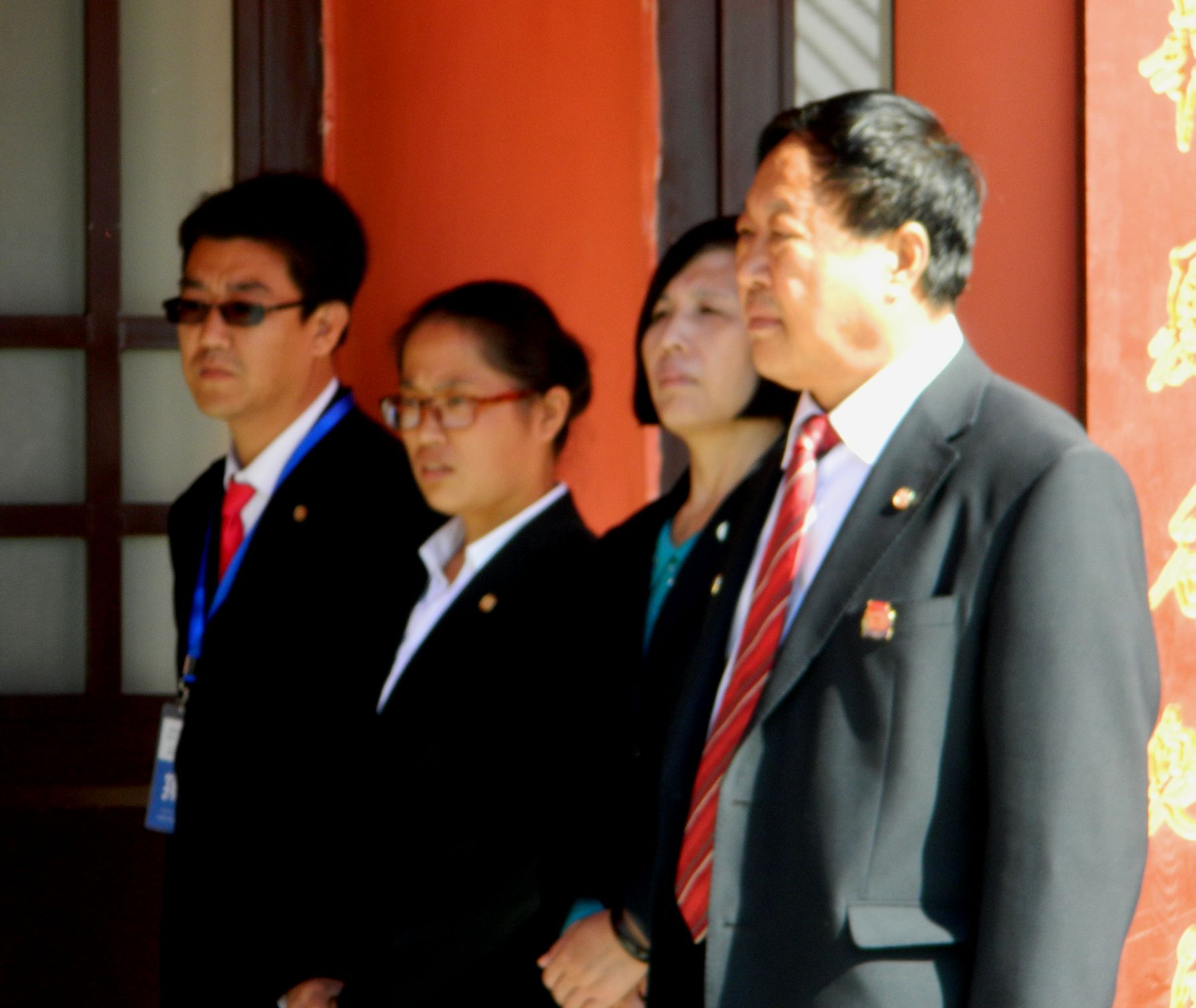
孙大午 Sun Dawu
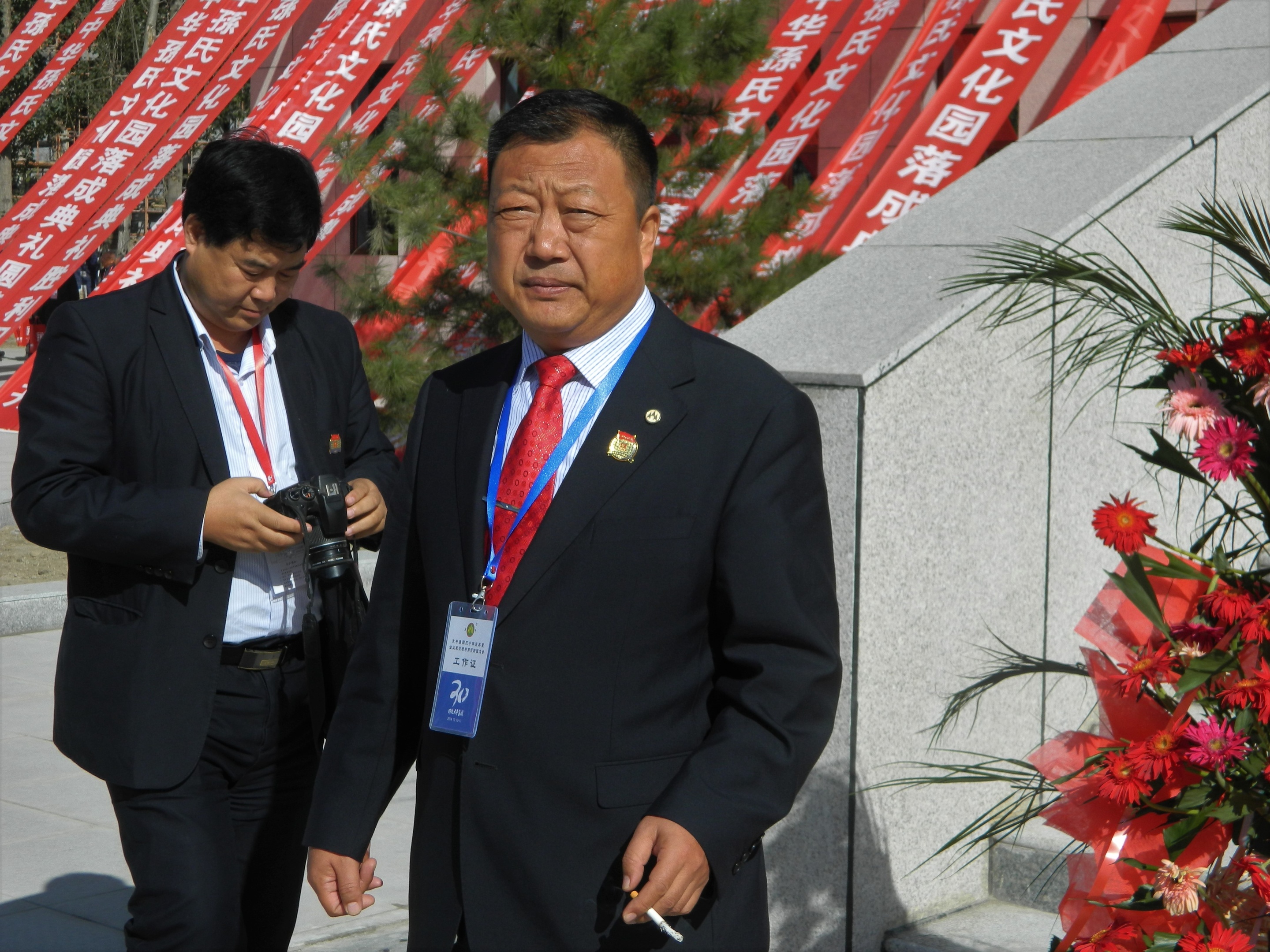
孙志华 Sun Zhi Hua
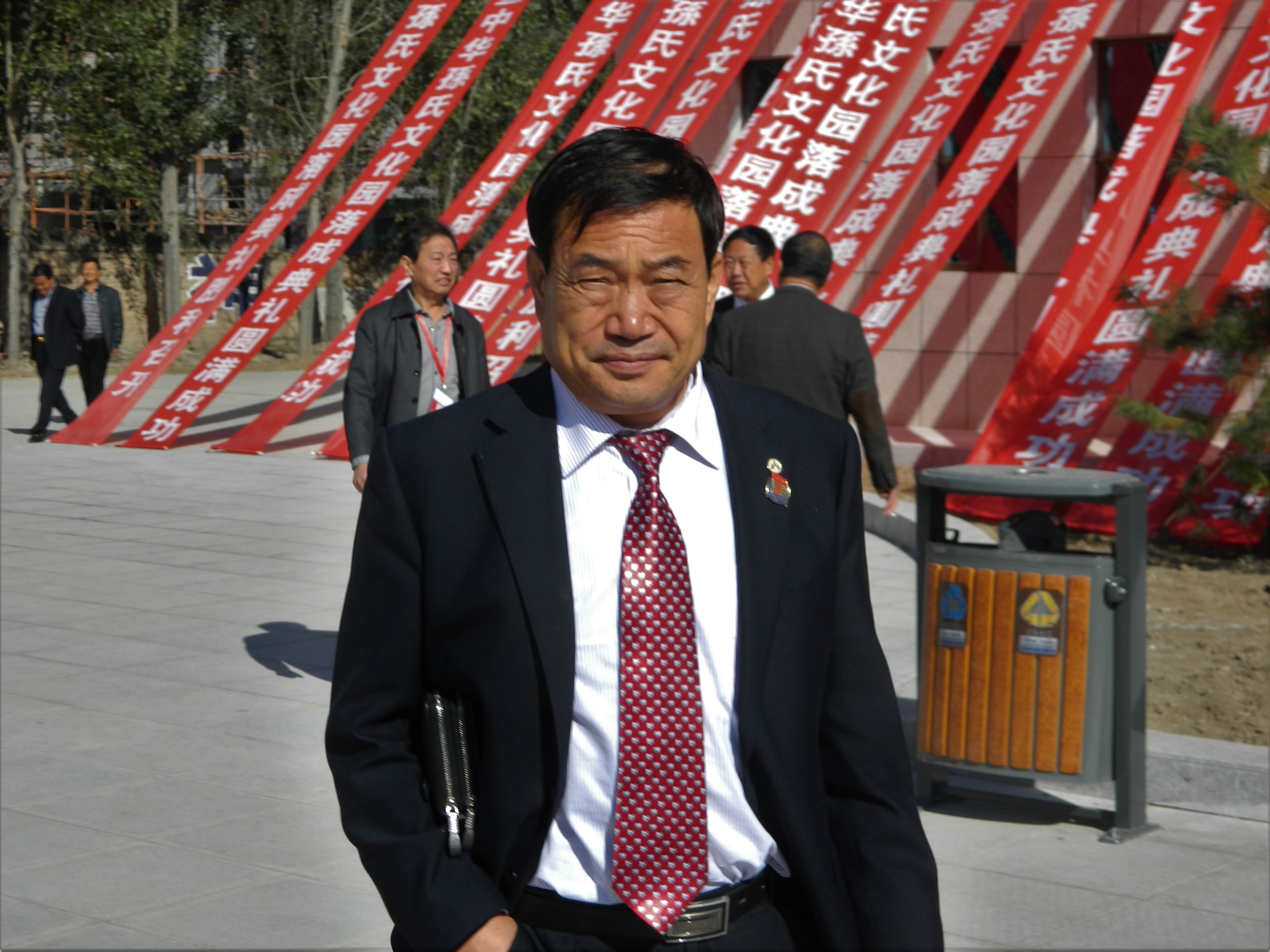
孙德华 Sun De Hua
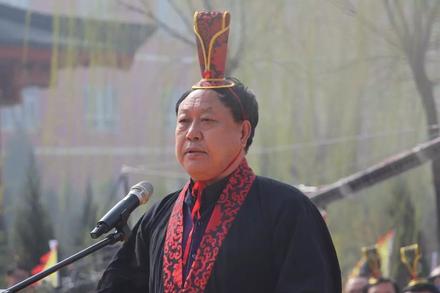
Sun Dawu 2014-09-16 17:22
I feel very good about traditional Chinese culture. However, this is not only about how traditional culture is reflected in Confucianism, Buddhism and Taoism as it will never solely exist in schools and books. More traditional culture should be reflected in the home, family, clan, and ancestral heritage. A man without culture is not terrible as terrible is to be uneducated. Culture can be derived from the schools and books, but education must come from the family and the family environment.
孙大午 2014-09-16 17:21 于 北京 通过网站
我感觉中华传统文化非常好,但这种传统文化绝不仅仅体现在儒释道,也决不仅仅存在于学校和书本,更多的传统文化应该体现在家庭、家族、宗族、宗祠传承上。一个人没有文化并不可怕,没有教养才是可怕的。文化可以来源于学校,来源于书本,但教养一定来源于家庭,来源于家族环境。
Dawujituan is a private enterprise which a decade ago was a private house implementation of the constitutional system. The private nature of this constitutional system called Taiwujituan stands for law. Because of the scale of family business most people are not worried about the absence of professional managers, but rather family members or business veterans who form offside privileges. The private constituent of business owners, decision makers and operators are decentralized. This limits the right to determine the guiding principles of corporate governance: clear property rights, sound system as well as targeted reward and punishment, "Sun Dawu said.
大午集团是一家私营企业,十年前在企业内部推行了私企立宪制度。“大午集团的私企立宪制度本质上就是依法治企。家族企业一旦形成规模,最让人担心的不是职业经理人的缺位,而是家族成员的越位或是创业元老们形成的特权。私企立宪对企业的所有者、决策者、经营者进行了分权、确权和限权,并确定了企业治理的十六字方针:产权清晰、制度健全、目标明确、赏罚分明。”孙大午说。
孙大午:我的依法治企试验 Sun Dawu: My Test for Law
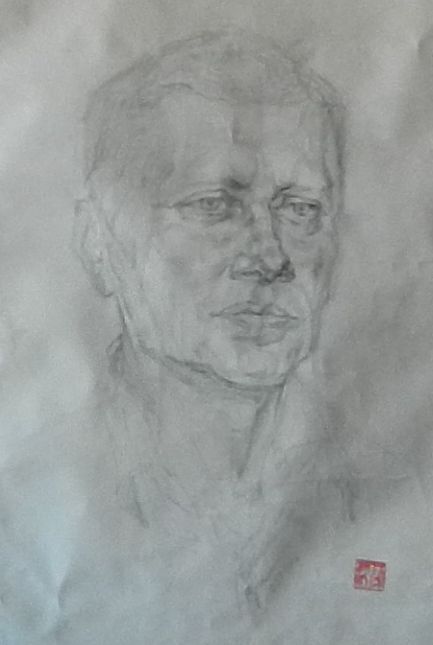
D. Carlton Rossi
July 13, 2025
Question: Has Sun Dawu in effect advocated for and practised moral capitalism?
GPT-40 mini
Answer: Yes, Sun Dawu has effectively advocated for and practiced principles that align with moral capitalism through his business activities and social initiatives. Here are several key aspects that illustrate his commitment to moral capitalism:
1. Community Investment
Sun Dawu has made significant investments in his local community, focusing on education, healthcare, and infrastructure. By prioritizing the well-being of the community, he embodies the moral capitalist principle of considering the interests of all stakeholders, not just shareholders.
2. Support for Farmers
As an entrepreneur in the agricultural sector, Sun has been a vocal advocate for the rights and interests of farmers. He has worked to improve their conditions and promote sustainable agricultural practices, reflecting a commitment to social responsibility and ethical business practices.
3. Ethical Business Practices
Sun Dawu has criticized corruption and unfair competition in the business environment. His emphasis on integrity and fairness in business dealings aligns with the moral capitalist view that companies should operate ethically and contribute positively to society.
4. Advocacy and Activism
Sun has not shied away from speaking out on social and economic issues, even when facing challenges from authorities. His willingness to advocate for justice and fairness demonstrates a commitment to moral principles, reinforcing his role as a responsible business leader.
5. Focus on Sustainable Development
His approach to business includes a focus on sustainability, recognizing the importance of environmental stewardship. This aligns with the moral capitalist perspective that businesses should operate in ways that are environmentally responsible and sustainable for future generations.
Conclusion
Through his actions and advocacy, Sun Dawu has effectively promoted and practiced moral capitalism. His commitment to community welfare, ethical business practices, and social responsibility exemplifies the principles of moral capitalism, making him a notable figure in discussions about ethical entrepreneurship in China.
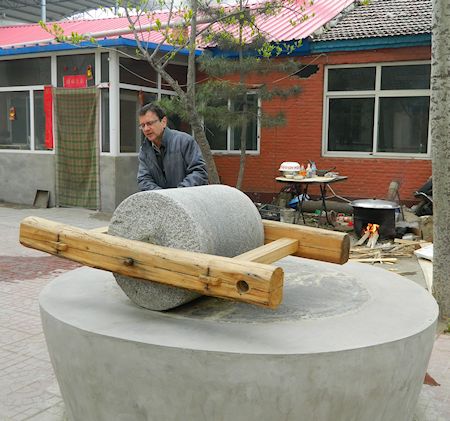
D. Carlton Rossi grinding corn at Langwuzhuang Hebei on April 20, 2013
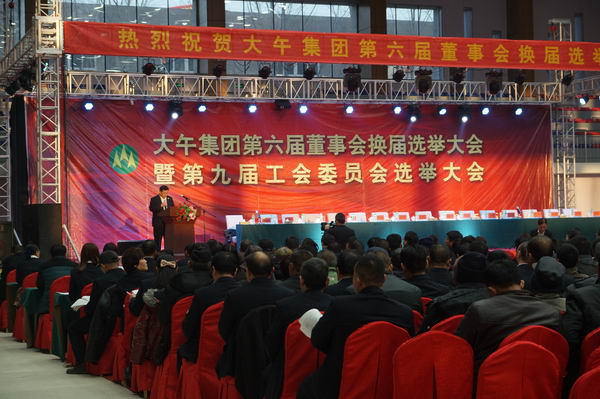
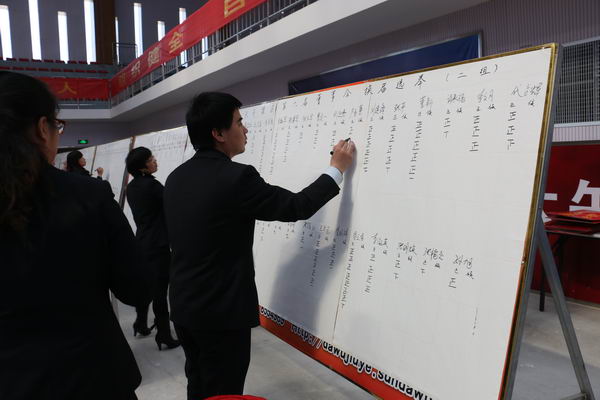
Dawu Group 大午集团 The Sixth General Election of Directors
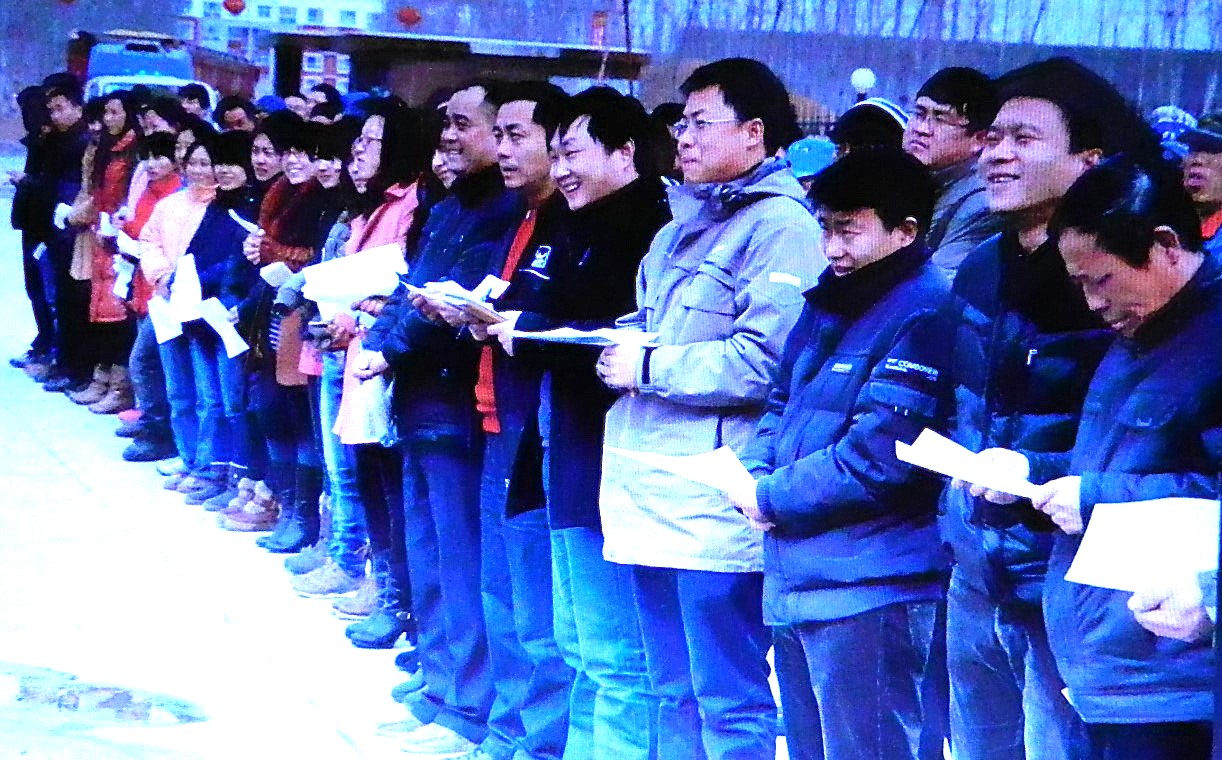
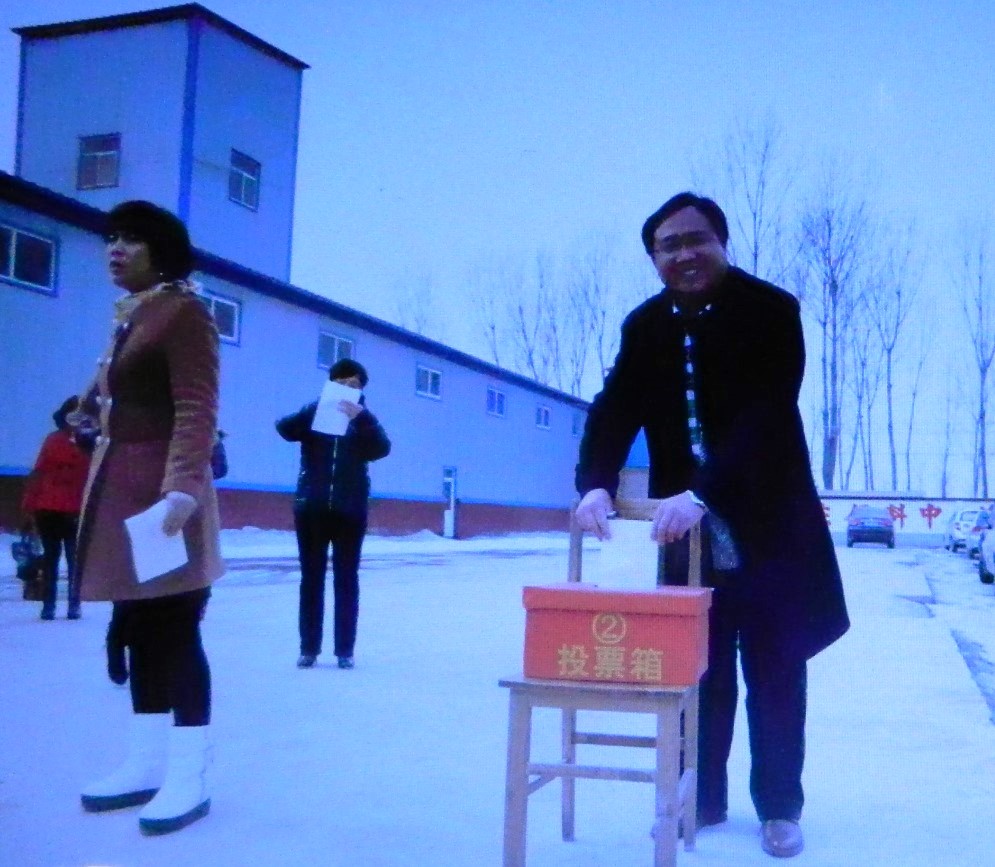
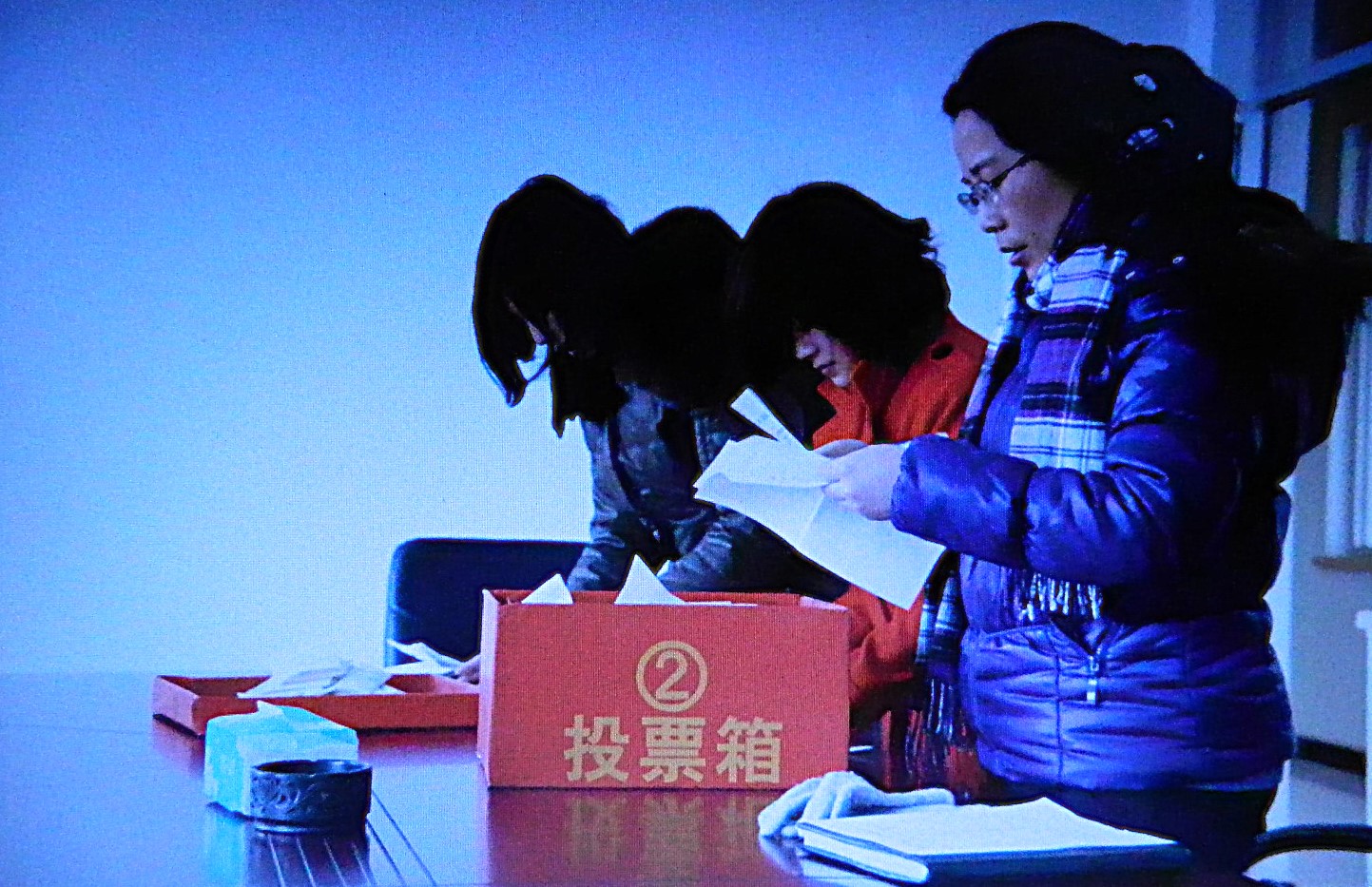
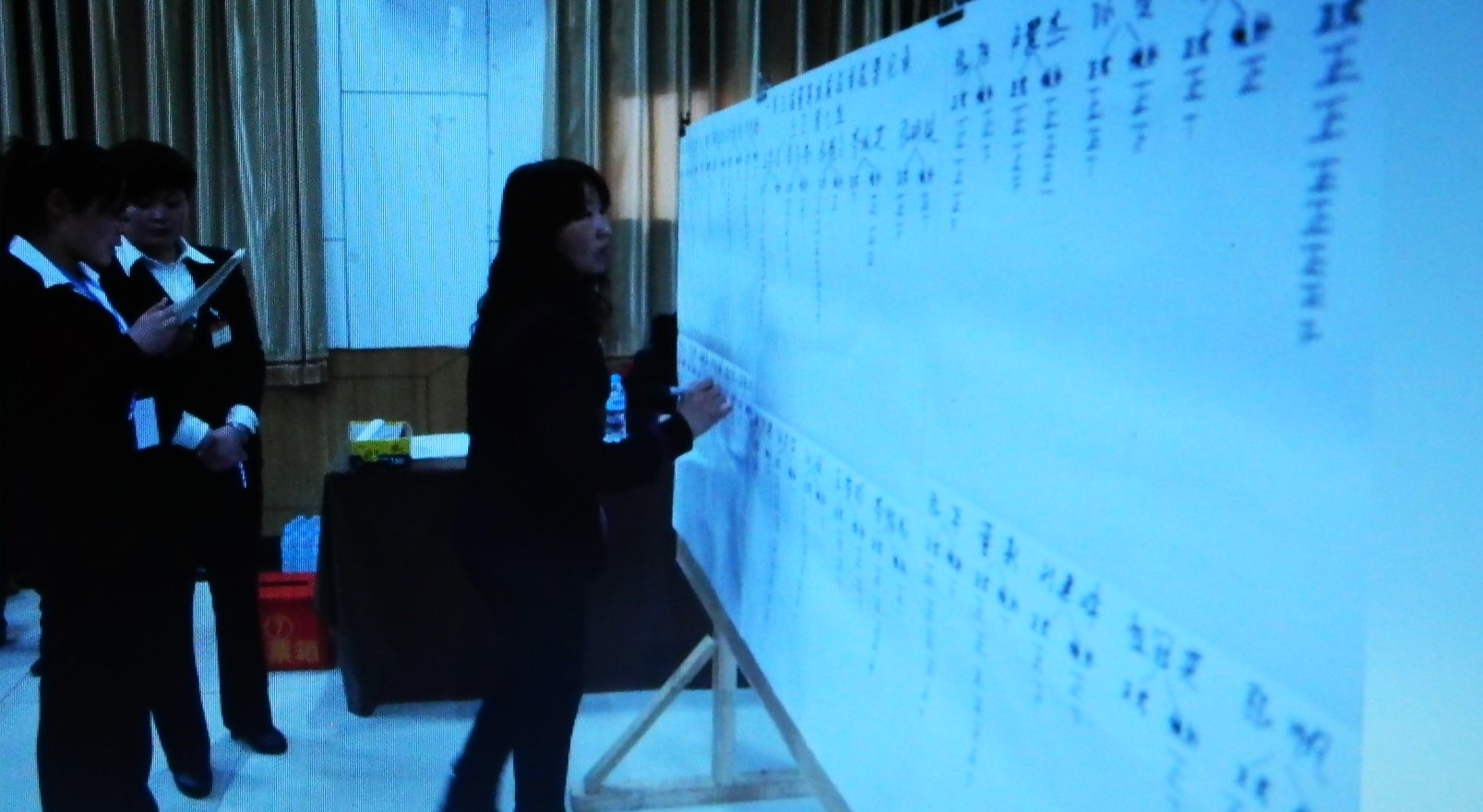
大午集团 Dawu Group The fifth general election of the board of directors

Private Constitutional
I. Preamble
During their university studies several students took part in the school's "student research project". Our group project title is "Big Afternoon Agriculture and Animal Husbandry Group Corporate Governance Model". The final results of the paper concerned "the private constitutional monarchy". After more than 10 years of development, the group's "Private Enterprise Constitutional System" emerged to lay a solid foundation which incorporated several changes.
At the activity, the Chairman of the Board of Supervisors explained the origin, content, essence and practice of the private enterprise's constitutional system. He also, elaborated upon the stipulation of the family member's subsidy, staff's benefit, the staff's reward and the retiring of the directors in the private enterprise's constitutional system. The supervisor was close to the company's operating practice. The explanation aroused the empathy of the participants who burst into applause.
It can be said that the corporate governance model of Dusong Farming and Livestock Group is the practice of a parliamentary system in an enterprise management system. Here, we will introduce the establishment, operation and performance of the DFLG.
Second, the origin of the "private enterprise constitutional system"
In 2003, because of the "illegal fund-raising case", Sun Dawu and Dafu Group management of more than 10 people were under police control. For a time, noon group was rudderless. Sun Meng who is the son of Sun Dawu was studying at university and preparing to study in Australia. He was temporarily appointed as the Chairman of the Board of Directors in accordance with relevant regulations. As a result, Sun Meng who was the Chairman of the incumbent position had no experience. The operating group of the afternoon suddenly fell into a predicament.
With support of academia and the strong appeal of the business community the "Sun Dawu "illegal fund-raising" case came to nothing. On a sunny day, the punishable imprisonment was limited. The real Sun Afternoon contemplated through meditation the successor problem.
Through thinking and exploration of the British constitutional monarchy evolved the enterprise management decision-making power, the right to operate, the right to monitor, the separation of the three powers and the overall corporate ownership. It was decided not to interfere with the business decision-making, management, and implementation of workers' democratic participation. In 2004, the private, corporate, governance, constitution model of the afternoon farming and animal husbandry group was established. Officially began Sun Dawu's "constitutional monarchy" and "labor republican" practice.
Third, the Group's "private constitutional system"
The Group's top management is the board of directors ,the council and the board of supervisors. How will the three members produce? What are their responsibilities and powers? What about the running rules? To everyone a brief introduction.
(1) The Board of Directors
1, The Board of Directors is the highest decision-making body. The board of directors shall be composed of one chairman and one or two vice-chairmen, and a number of directors. The board of directors shall be elected by the employee representative conference and the chairman shall be elected by the directors. Each director has a term of 2 years, the chairman has a term of 4 years and can be re-elected. The chairman of the board of directors may nominate the vice chairman of the board of directors, and the nominated vice chairman shall be approved by the joint meeting of the three parties.
2) The Board of Directors shall exercise the following functions and powers: to determine the Group's development strategy and major development policy; to decide the annual production, operation, investment plans and work plans of the Group; to formulate the annual incentive plan for employees, and the annual profit distribution plan; operation, and cooperation; to review the Group's articles of association and the system of changes; to appoint, remove or transfer one or two of the subsidiary.
3. The board meeting shall be convened at least once a month. The meeting of the board of directors shall be convened and presided over by the chairman of the board of directors. If the chairman is unable to perform his duties due to special reasons then a chairman shall be appointed or the the chairman of the board of supervisors will preside so that resolutions and decisions will be sent to the Board of Supervisors. More than two thirds of the directors shall be present at a meeting of the Board of Directors. Each director shall have one vote and shall not abstain. The resolution of the board of directors must be adopted by more than two-thirds of all the directors. The director shall sign the resolution of the board of directors and take the responsibility for the resolution of the board of directors.
(B) The Council
1, The Council is the executive body of the Group and is responsible for the implementation of the resolution of the Board of Directors; the composition of the Council consists of top leaders of the office and subsidiaries. The General Manager is responsible for convening the Board meeting once or twice a month.
2. The general manager shall be elected by the board of directors from among the directors. The term of office shall be four years and re-election is possible. The general manager may nominate the deputy general manager among the members of the board of directors or the members of the board of directors. The nominated deputy general manager shall be approved by the joint meeting of the three associations.
3, The general manager of the board of directors is responsible for the exercise of the following powers: presides over the company's production and operation management, organization and implementation of the board of directors resolutions; organizes the implementation of the annual business plan and investment plans, is responsible for the accounts and tasks assessment; acts on behalf of the Group's external important business; oversees The Articles of Association of the Company and other functions and powers granted by the three associations.
(3) The board of supervisors
1, The board of supervisors consists of the owners of property rights family members, trade union chairman, director of the Ministry of Supervision, Chief Financial Officer and other staff. The Supervisory Board has the greatest supervisory power. The board of supervisors and its chairman shall be responsible for and carry out the system of inheritance.
2, The board of supervisors exercises the following powers: the development of the enterprise's basic operating mechanism - "private enterprise constitutional system"; Organizational director election; check the group's financial and business conditions; access to financial books and other accounting information; if necessary, may require the group chairman to supervise and review the financial information, business reports and profit distribution plans of the group companies submitted by the board of directors and the council; and the supervisory committee of the board of directors and the board of supervisors. The chairman of the board of supervisors or the representatives of the board of supervisors may attend the meetings of the board of directors and the board of supervisors.
3, The board of supervisors organizes every two years a general election (every year in December as the election month), the election of the new board of directors. Temporary offices (electoral offices or committees) may be established during the election period which will operate under the authority of the board of supervisors.
Fourth, the "private enterprise constitutional system" of parliamentary nature
(A) The board of directors of the property
From the previous introduction, we can see that the board of directors is equivalent to "Parliament" as it is the core power of the Group. But as an individual, the chairman of the board has only the power of "Speaker". The chairman can only convene and presided over the board of directors and can not make any independent decisions. All decisions must made on the basis of one vote per person. More than two thirds of the directors shall be present at a meeting of the Board of Directors. Each director shall have one vote and shall not abstain. The resolution of the board of directors must be adopted by more than two-thirds of all the directors.
The directors enjoy the following rights: Review the Group's business, financial reports, monthly work summary, and keep abreast of the company's business operations and management; they are concerned about the unit and the Group's production, operation and development which affects the general development. In addition, they provide advice and guidance on the production, operation and management of the Group or the Group's member units with the authorization of the Board of Directors or the informed consent of the Board of Directors. The Company may use the vehicles of the Company free of charge including private cars; enjoy the system of retirement and have the right to study and study abroad for qualifications.
In addition, the election of the directors of the Group is a democratic election of all the workers and staff members who had the right to vote. From the beginning of the election of the board of directors to the present, the demand for the right of suffrage is more and more stringent. In the earliest, as long as there are more than 3 years of service, workers have the right to vote, and in the later those with more than 5 years of service have the right to vote. For members of the cadre team it is required there be 10 years or more of service for the right to vote. The number of workers with the right to vote is now about 500-600 people which in some sense reflects the ancient Roman Senate.
On the other hand, it is interesting to note that the requirements of the DBS Group are very lenient regarding eligibility as a candidate as long as there is more than one year's seniority. - as long as there is more than one year's seniority to be eligible for election as a candidate.
(B) The attributes of the Cabinet Council
The board of directors is equivalent to the "cabinet" of the group, and the general manager who is equivalent to the prime minister has a relatively large personal authority. It is mainly the board members who implement the resolutions of the board of directors; but, it is the general manager who represents the group regarding external affairs.
(C) The chairman of the board of directors of virtual properties
The chairman of the Group's property rights owners is equivalent to the heads of state-owned units of the parliamentary system and as such does not participate in the group's decision-making and management. As the founder of this system, Sun Dawu has never intervened in the board of directors regarding decision-making and management of the Council. Even after his proposal was rejected by the board of directors more than once his proposals are rarely mentioned. It is only the leadership of the supervisory body, led by the members of the board of supervisors and board of directors and other institutions and their members which monitor the conduct.
Now, the Group has successfully organized the sixth session of the general election of the board. Not only is the orderly participatory enthusiasm very high of the majority of workers, but votes, elections and speeches have been used in board elections. In some sense it resembles democratic, national parliamentary elections. In addition, the convening, procedural and voting rules of the Board of Directors are similar to those of parliamentary countries. Therefore, the author of the afternoon group's "private enterprise constitutional system" regards it as a "parliamentary system."
Fifth, The implementation effect of the "parliamentary system"
In the management system of the Dawu Group then the only evaluation of a manager or management system is based on performance. Does this mean that implementation effect of the afternoon group resembles a "parliamentary system"?
The performance of enterprise management is the most basic and most important of two indicators of the company's development speed. The second is the treatment of workers. Here we use data regarding implementation of the "parliamentary system" to illustrate the two aspects.
(A) The rate of enterprise development
The output value of enterprises since the implementation of the constitutional system of private companies increases at an annual rate of 30%. Since 2004 the output value of seven subsidiaries is 100 million yuan with less than 1000 employees. Now, the output value has increased tremendously with 4500 employees.
The Group has at least 80 million square meters of construction area of fixed assets. Current assets are all net assets without bank loans. Each bank has deposits and the subsidiaries are profitable. Dadong Group has the largest stadium in Baoding which can accommodate 6000 people. It is building the top three hospitals with 3000 beds. It can be said that it will be among the best hospitals in Hebei Province. The new hotel is built to accommodate 2,000 people. The benefits of each subsidiary are very good.
In addition, the company stands at the forefront of the world's agricultural products. The Jinfeng breeder can sell for 5 dollars. The number of chicks hatching daily is 300,000. If there are 300,000 chicks hatched per day then total output is over a billion chicks per year. Most of them are transported by plane to other countries such as the United States and the Netherlands.
(B) The treatment of workers
Workers wages calculated in December increased not less than 15% and now run at between 10 to 15% increments. The staff turnover rate runs in the 2% to 3% range. Each cadre training course has 300 to 400 people.
The main award to management personnel is based on profits. If profits exceed 20% then the excess is used to reward cadres. If there is no development and profits are lower than in the previous year then the cadres and workers enjoy a universal 8% reward. The reward to cadres cannot exceed five times the wages of workers an at the highest level cannot exceed 10 times.
The majority of workers also enjoy paid travel of between 1 to 7 days. At a higher level staff can go abroad. This year 80 to 90 people went to Japan. In the future staff may go further. , the future may also go farther. Now, some workers are in Qingdao, Shandong Province and other places. Some companies charter a plane for small treasury expenditures. Housing, medical care, school and , retirement benefits are relatively perfect.
Dawu Group employees also enjoy the benefits of reimbursement of medical expenses. According to the length of service, they enjoy a different reimbursement amount. More than 3 years they are reimbursed up to 3 million, 5 years up to 5 million, 10 years up to 10 million and 20 years up to 20 million on an annual report. Of course, the workers will generally take the health insurance reimbursement and are not reimbursed by the Group.
From the implementation of the constitutional system of private enterprises on a continuous or cumulative basis the chairman of the board can be elected no more than two times, the general manager no more than three times, the directors no more than eight times before they are entitled to retire or retire in principle. The children of directors (cadres) are encouraged to study abroad or go into business. There is available a venture capital fund of between 30 to 100 million yuan.
Generally speaking, it is very difficult for a farming and animal husbandry enterprises to develop rapidly unless through merger and acquisition. However, the potential of the "old peasants" of Xushui County, Hebei Province has been fully actualized through democratic management and bears rich fruit.
Sixth, the reasons for the success of the "New Deal" of Dawu Group
Democratic decision-making maximizes the avoidance of mistakes. The Afternoon Group's implementation of the concept of democracy under the "Group of Parliamentary System" releases the vitality of all employees. The root causes of the development can be succinctly summarized as follows:
A) Democratic elections to ensure the power of workers to mobilize the enthusiasm and cohesion of workers. To be a member of the board there must be enough votes from the staff. The most powerful weapon for workers to participate in enterprise management is their vote. A decision-making company has the power to choose candidates, but also to ensure the improvement of staff enthusiasm, sense of responsibility and cohesion. A Board of Directors elected by the people has a high degree of cohesion. As Sun Dawu said "if employees can vote by hand then they will not easily choose to vote with their feet".
(B) Democratic elections guarantee the harmony between the leadership. Elections are a kind of political, rule-based politics. To enter the board of directors there must be a vote of more than 500 voting, veteran employees. They rely on the personal character, ability, performance and prestige of the incumbent. There is no need to be anybody to become chairman. The recognition of the elected directors is by the same virtues, abilities, performance, prestige and so on. Yangmou politics means to win people hard to avoid the next defeat: to lose people means to not worry about being retaliated against.
(C) Democratic elections guarantee the quality of personnel in decision-making bodies. If one wishes to become a director then one must first go through the primaries. A joint recommendation of 10 people is required. Then, there is a re-election. Finally, there is a real election of the board where one must convince the voters of the subsidiaries. One must win the trust of others in the subsidiaries. Finally, one must win at least 400 votes of more than 500 people who are veteran employees, team leaders and cadres with more than 10 years of service to enter the Board. It may be difficult in democratic elections to select a super talent as the ancient Han Xin or Wu Qi, but it also avoids the mediocrity.
(D) Democratic decision-making can effectively avoid a lot of bold, arbitrary decisions. Any resolution of the Board of Directors shall be a one-person, one-vote of the Directors. Before the voting the parties will be allowed to give full expression of their personal views. This mechanism can roughly guarantee the correctness of decision-making, but also can mobilize people involved in the decision-making to implement the initiative. (A large percentage of board members will hold the number one position.)
(E) The release of the democratic management of the potential of everyone is to mobilize the enthusiasm of everyone. Democratic management is generally bottom-up management. Usually the grass-roots needs to reflect up for implementation. In the implementation of the "parliamentary system", the afternoon group subsidiaries rapidly increased profitability and produced more high quality products. All employees actively contribute to wisdom thereby rapidly releasing the great potential in a cause and effect relationship. At the same time, democratic management involves co-governance of enterprises through sharing the results of the development of management. Dawu Group employees in the enterprise effectively "co-rule" after the real "share" of the group's development results which also ensures the motivation of all Staff.
Summary and Enlightenment
When the Dawu Group implemented the "parliamentary system" in 2004, it was only a relatively good township and town enterprise. The employees were basically the "old peasants" in the nearby villages, and there were few college students. As an enterprise, its external environment changed. As a business, its requirements for decision-making efficiency is also much higher than the general administrative agencies; as a rural-based farming enterprises, their internal relations between the staff is close and complex.
In the widely popular theory of quality in the external environment with regard to the development stage of view it is in any case not suitable for agricultural and livestock groups or the democratic system. However, within such a group of enterprises in the rapid development stage of the grandparents living together with the "old peasants" along with scholar-led entrepreneurs it is not only suitable to establish a democratic system, but also far higher than the same period of China's economic development. The speed and much higher the quality of development of most enterprises prove the strength of democracy. The management reform of the Dawning Group can also be regarded as a glorious practice of democracy--especially the parliamentary system in China.
No matter how successful is the Big Dipper Group; nevertheless, some people can cite counter-examples to prove the harm caused by democracy; especially, when they come into contact with one-sided information. Then the transformation of the group can bring us what inspiration? If some of the abstract elements of the transformation of the afternoon group can be summed up then one can find similar democratization of the country as an analogy. In a broader context one can get some inspiration.
(A) The most powerful force to take the initiative to promote reform. To ask about who has the largest of influence at the afternoon group it is undoubtably Sun Dawu himself. New Year's Day is also Sun Day afternoon to promote the implementation of the afternoon. One of the most powerful forces takes the initiative to promote the reform of democratic management. The process will no doubt be smooth. The executives and ordinary people may not be able to understand the intention of this system, but with the implementation of this system over a period of time we will get the New Deal co-governance, sharing business opportunities and real gains. The final set up of the system means unbreakable authority.
Sun Dawu--as chairman of the board--never intervened in the Group's decision-making and management. It is only the board of directors and members of the Council who have the power and responsibility in this area. Sun Dawu's proposal was rejected by the board of directors more than once. Sun Dawu respected the decision-making power of the board. Sun Day afternoon is now unable to overthrow the system according to his own statement.
A very similar case involved Japan's post-war reforms. After the war the Japanese did not know what democracy was, but under the occupation forces commander MacArthur's strong impetus, Japan opened the reform process, and soon the new system in Japan began on a track of sound development. Whether in the United States or Japan, there are people who do not agree with the views of Marshal MacArthur, but they can not compete, and ultimately these people benefit from MacArthur's actions.
In contrast, those countries that failed in democratization reform, mostly because of the strong force that destroyed the initial system, resulted in a lack of authority and difficulty to implement the system. Imagine Gaddafi, Mubarak and other dignitaries if they could take the initiative to promote their own reforms, and carefully protect the new system of operation. Then their lives would be able to radiate a different luster.
One of the most powerful forces is to take the initiative to promote a civilization and progress of the system. The best care of this system is to regulate all aspects of power to ensure the healthy development of this system at the lowest cost to promote an organizational civilization and progress. This approach is such a powerful force and the greatest fortune!
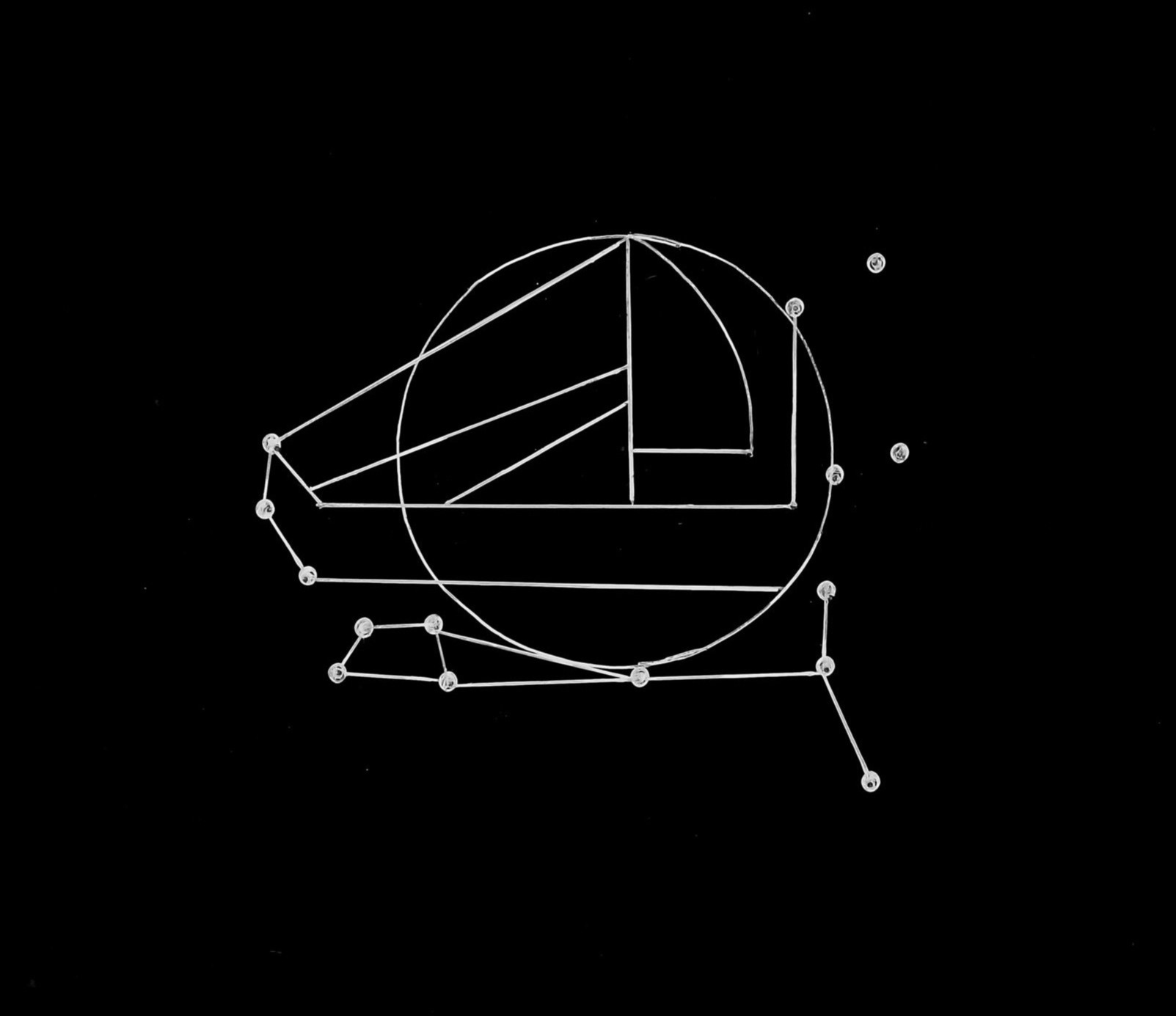
Sun Yatsen 孫逸仙 孙中山: The Solar Barque known as Mesektet
D. Carlton Rossi September 28, 2025 copyright
Apophis or Apep was the serpent or dragon of chaos which in this I'mage is composed of the rectangle of the Little Dipper, Thuban or 11 Draconis (Flamsteed designation), Mizar and Alkaid of the Big Dipper. The Ouroboros protectively circles the Sun boat of Ra as it journeys through the Underworld.

Sun Yatsen 孫逸仙 孙中山: The Total Lunar Eclipse
copyright D. Carlton Rossi September 28, 2025
The Solar Barque known as Mesektet. The Total Lunar Eclipse upsets the Mesektet's nightly journey to the Underworld at sunset. The Big Dipper may represent the rearing, black Egyptian cobra (Naja haje). The snake below the Solar Boat of Ra may have its actual Nile counterpart as the False Egyption Cobra (Malpolon moilensis) symbolizing chaos and destruction.. His name is Apophis or Apep. This serpent is a mimic.
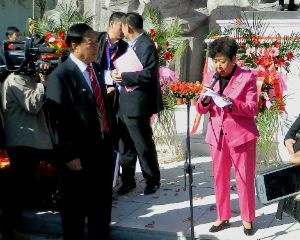
Sun Sui-ying, granddaughter of Sun Yat-sen, passes away at 103
Dimsumdaily Hong Kong June 1, 2025
1st June 2025 – (California) Sun Sui-ying, the granddaughter of Sun Yat-sen, sadly passed away in the United States on 24th March, 2025, at the age of 103. Her family recently held a memorial service in California to celebrate her remarkable life. Born on 16th January, 1922, in Guangzhou, Sun was the daughter of Sun Ke, who was the mayor of Guangzhou at the time, and Chen Shuqing. She received her education in various institutions across Guangzhou, Shanghai, Hong Kong, and Paris.
https://www.dimsumdaily.hk/sun-sui-ying-granddaughter-of-sun-yat-sen-passes-away-at-103/
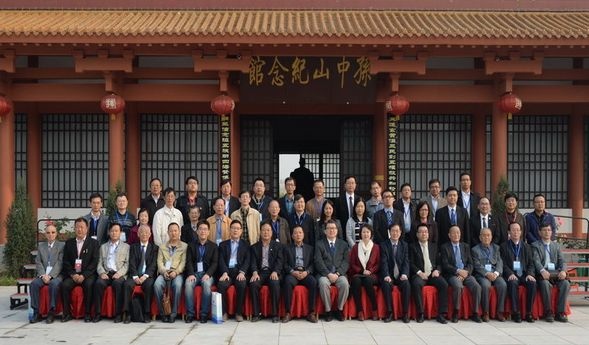
"2015 Cross-Strait Thought Seminar" held in Taiwujituan
Dr. Sun Yat-sen (Traditional Chinese: 孫中山 or 孫逸仙; Pinyin: Sūn Zhōngshān; or "Sun Yixian") (November 12, 1866 – March 12, 1925) was a Chinese revolutionary and political leader often referred to as the "father of modern China." He played an instrumental role in the eventual collapse of the Qing Dynasty in 1911. He was the first provisional president when the Republic of China (ROC) was founded in 1912, and later co-founded the Kuomintang (KMT) and served as its first leader. Sun Yat-sen was a unifying figure in post-Imperial China, and remains unique among twentieth century Chinese politicians for being widely revered in both Mainland China and in the Republic of China Taiwan. October 17, "2015 Cross-Strait Thought Seminar" was held in Hebei Taiwujituan. The seminar was organized by China Taiwan Network, Sun Yat-sen Institute, Taiwan and China Culture Promotion Association, China Association of Outstanding Young Economic Development organized Dawujituan and Chinese Culture Park Sun contractors. Coordinators of the seminar invited more than 40 experts in universities and research institutions of Zhongshan University, Chinese Academy of Social Sciences, Donghua University, Shandong University, Hebei University, National Taiwan Chinese Culture University, National Chung Cheng University, I-Shou University, Hong Kong, Zhuhai College, University of Macau Scholars to participate in and expand the discussion. The People's Daily, Xinhua, China Network, People's Daily, Xinhua News Agency, China News Agency, Radio International, China Central Television, Southeast TV, Channel TV, Xiamen TV, Voice of the Straits, Ta Kung Pao, Wen Wei Po, "Taiwan Voice" magazine International online, China Daily, CCTV, China Youth Network, China Economic Net, China National Radio, China Tibet Network, Guangming Wang, China News overseas, Sina, Sohu, Netease, Phoenix, Tencent, the World Wide Web , Baidu, 360 and other media were also included to observe the seminar. 10月17日,“2015海峡两岸孙中山思想研讨会”在河北大午集团召开。本次研讨会由中国台湾网、中山大学孙中山研究所、台湾中华文化推广协会、中华杰出青年经贸发展促进会主办,大午集团和中华孙氏文化园承办。研讨会邀请了中山大学、中国社科院、东华大学、山东大学、河北大学、台湾中国文化大学、中正大学、义守大学、香港珠海书院、澳门大学等高校与研究机构的40多位专家学者参会并展开研讨。人民日报海外版、新华社、中新社、国际广播电台、中央电视台、东南卫视、海峡卫视、厦门卫视、海峡之声、大公报、文汇报、《台声》杂志;人民网、新华网、中国网、国际在线、中国日报网、央视网、中国青年网、中国经济网、中国广播网、中国西藏网、光明网、中国新闻网、海外网、新浪、搜狐、网易、凤凰网、腾讯、环球网、百度、360等媒体观摩了研讨会。
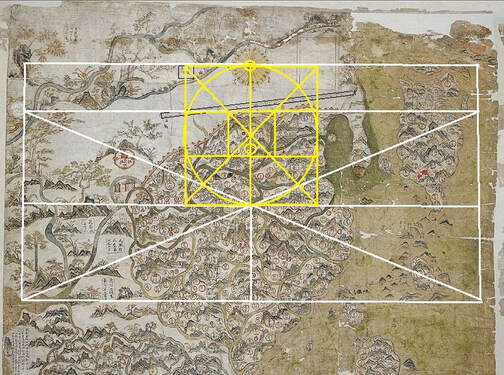
The Eastern Seaboard Rectangle
(Third anniversary of Sun Dawu's arrest)
November 11, 2023
孫中山 孙中山 Sun Yatsen Sun Yat-sen "Three Principles of the People" 三民主義 nationalism democracy livelihood of the people Lily Sui-fong Sun 孫穗芳 孫穗英 孙科之女 孙穗英 孫穗瑛 孙穗瑛 2025 Taiwan 台灣 Republic of China 中華民國 Qinghai Revolution Taiwan Strait 臺灣海峽 台灣海峽 台湾海峡
孙大午 Sun Dawu entrepreneur businessman farmer pig farmer 孙大午sundawu Sun Dawu孙大午 sundawu dawu sun 大午集团Dawu Group 河北大午农牧集团有限公司 Hebei Dawu Agriculture and Animal Husbandry Group Confucianism rule of law common prosperity agriculture ethical capitalism Dennis Rossi D. Carlton Rossi D Carlton Rossi Canada China People's Republic of China 2025 news prison convicted sentence 2025 Mao Yushi Shen Hong Unirule Michael Kovrig hostage
河北大午农牧集团有限公司 成立于1996年10月30日 成立于 1996年10月30日 Address Langwuzhuang Village Gaolincun Town Xushui District Baoding 071099 People's Republic of China 地址 河北大午农牧集团有限公司 河北大午农牧集团有限公司
中国河北省保定市徐水县郎武庄村 (72550) 轼茅于 盛洪. 天则经济研究所 香港 台湾
孫大午 企業家 商人 農民 養豬戶 孫大午 孫大午 大午集團 大午集團 河北大午農牧集團 儒家思想 孔子法治 共同繁榮 農業 倫理資本主義 丹尼斯羅西 加拿大 中華人民共和國 中華人民共和國新聞 香港 台灣 2025 年 香港 台灣
Nut Shu Geb Maat Mandate of Heaven 玛特与天命 China Autum Heliopolitan cosmogony creation myth pyramid Sphinx Giza celestial blueprint Old Kingdom Egyptian civilization culture religion Nile Yellow River Banpo pottery Huangdi death mask